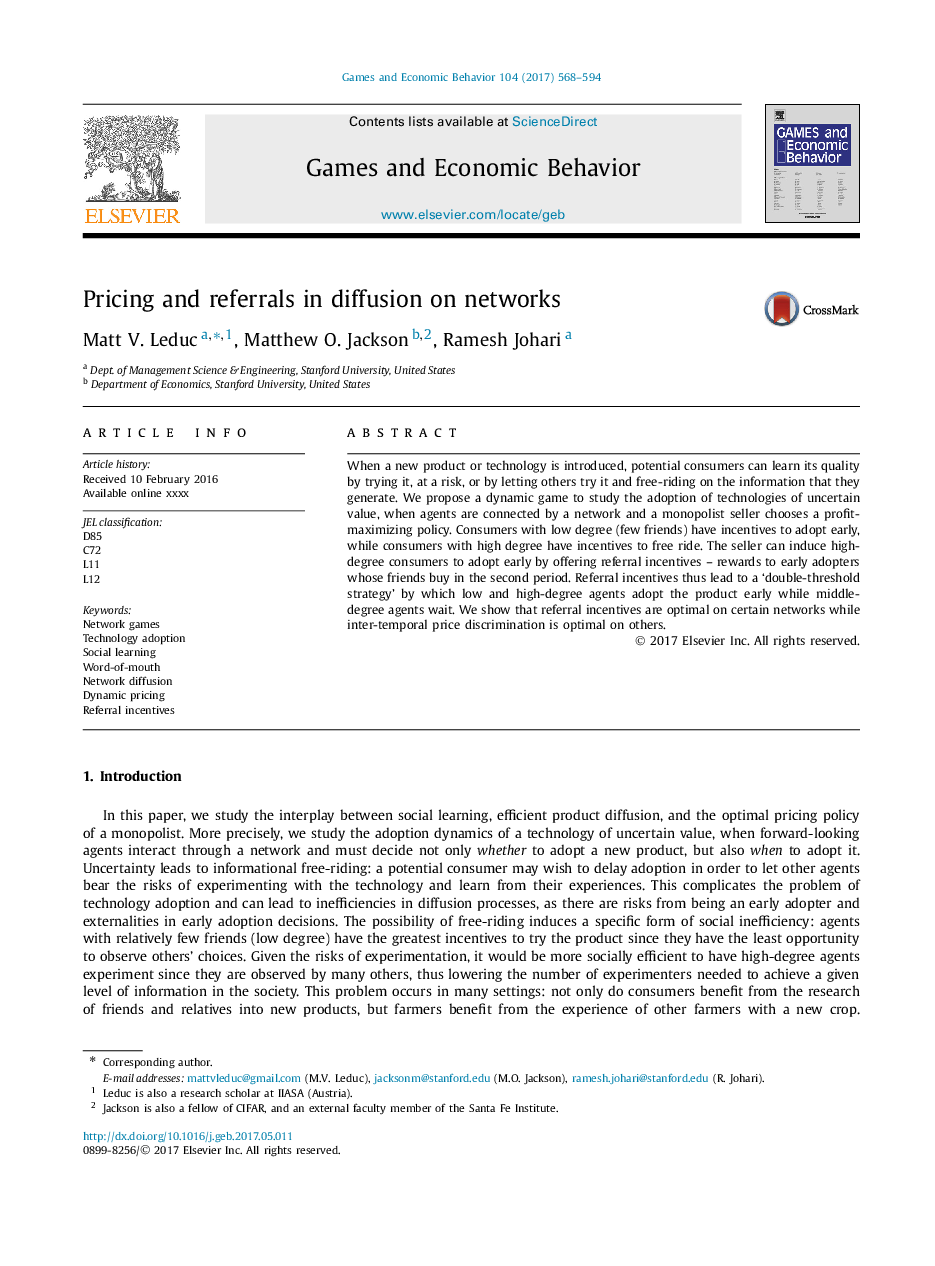| Article ID | Journal | Published Year | Pages | File Type |
|---|---|---|---|---|
| 5071350 | Games and Economic Behavior | 2017 | 27 Pages |
Abstract
When a new product or technology is introduced, potential consumers can learn its quality by trying it, at a risk, or by letting others try it and free-riding on the information that they generate. We propose a dynamic game to study the adoption of technologies of uncertain value, when agents are connected by a network and a monopolist seller chooses a profit-maximizing policy. Consumers with low degree (few friends) have incentives to adopt early, while consumers with high degree have incentives to free ride. The seller can induce high-degree consumers to adopt early by offering referral incentives - rewards to early adopters whose friends buy in the second period. Referral incentives thus lead to a 'double-threshold strategy' by which low and high-degree agents adopt the product early while middle-degree agents wait. We show that referral incentives are optimal on certain networks while inter-temporal price discrimination is optimal on others.
Keywords
Related Topics
Social Sciences and Humanities
Economics, Econometrics and Finance
Economics and Econometrics
Authors
Matt V. Leduc, Matthew O. Jackson, Ramesh Johari,
